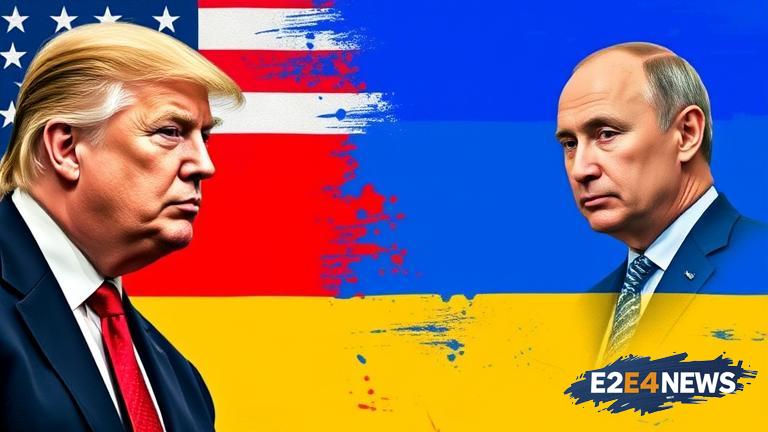The ongoing conflict between Russia and Ukraine has led to a significant escalation in trade tensions between the US and Russia. In an effort to influence Putin’s decision-making on Ukraine, the Trump administration has imposed tariffs on various Russian goods. The tariffs, which range from 10% to 50%, target key Russian industries such as steel, aluminum, and energy. The move is seen as a strategic attempt to pressure Putin into reconsidering his stance on Ukraine. However, the effectiveness of this strategy is uncertain, and many experts believe that it may have unintended consequences. The Russian economy is heavily reliant on exports, and the tariffs could potentially harm American businesses that rely on Russian imports. Furthermore, the tariffs may not have the desired impact on Putin’s decision-making, as he has shown a willingness to withstand economic pressure in the past. The US has also imposed sanctions on several Russian individuals and entities, which has led to a significant decline in the value of the Russian ruble. Despite these efforts, Putin remains committed to his stance on Ukraine, and the conflict shows no signs of abating. The situation has sparked concerns about the potential for a wider trade war between the US and Russia, which could have far-reaching consequences for the global economy. The US has also been working to strengthen its alliances with European countries, which have been affected by the conflict in Ukraine. The European Union has imposed its own set of sanctions on Russia, which has led to a significant decline in trade between the two regions. The conflict in Ukraine has also had a significant humanitarian impact, with thousands of people displaced and many more affected by the ongoing violence. The US and its allies have called for a peaceful resolution to the conflict, but a lasting solution remains elusive. The situation remains complex and multifaceted, with many different factors at play. The US will need to carefully consider its next steps in order to achieve its goals without causing unintended harm to the global economy. The use of tariffs as a tool of foreign policy is a complex issue, and the outcome of this strategy is far from certain. The world will be watching closely as the situation continues to unfold.
